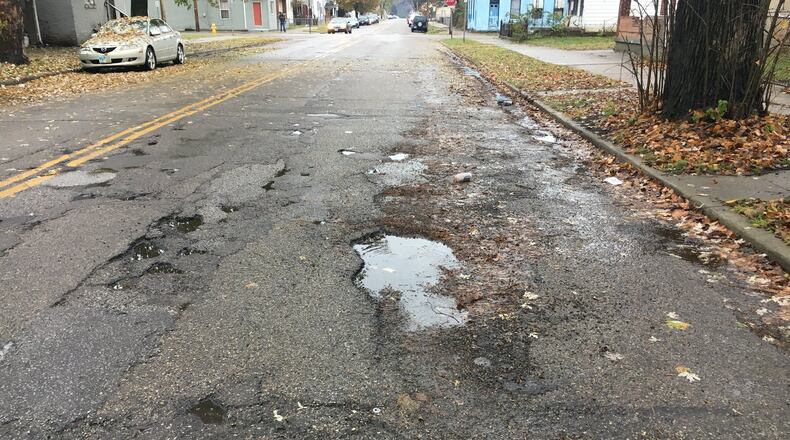The levy would cost the owner of a home valued at $100,000 about $136.50 per year.
According to a memo Finance Director Dave Jones sent to council about the proposed levy, it will let the city repair up to four miles of street and maintain up to another four miles.
“Currently, 70 percent of the city’s streets are in fair to poor condition, with 50 percent of the city’s streets rated as poor,” Jones wrote.
In a second resolution, city council provided “guidance towards the potential of receiving street levy funding and how aid funds shall be allocated.”
The resolution notes citizens formed a local political action committee to advocate for the levy. The resolution gives this guidance about how the levy money will be spent within Hamilton’s 17 neighborhoods. Here are the terms:
- "A neighborhood funding paving formula, set forth by the city manager or his designee, will be established" that will determine funding allocations for each of the 17 neighborhoods.
- Council declares that funds from the levy will be used to repair and repave streets, with work on related curbs and gutters.
- "Council further declares that street levy funds cannot be used immediately adjacent to the Spooky Nook at Champion Sports Complex, and should be focused on residential streets."
- "Each neighborhood will be empowered to schedule public meetings of their residents to determine which streets (based on the funding formula) are the desired streets to receive priority funding if the street levy is successfully approved by voters."
- "Council approves the annual paving schedule recommended by the neighborhood funding paving formula, set forth by the city manager or his designee."
About the Author
